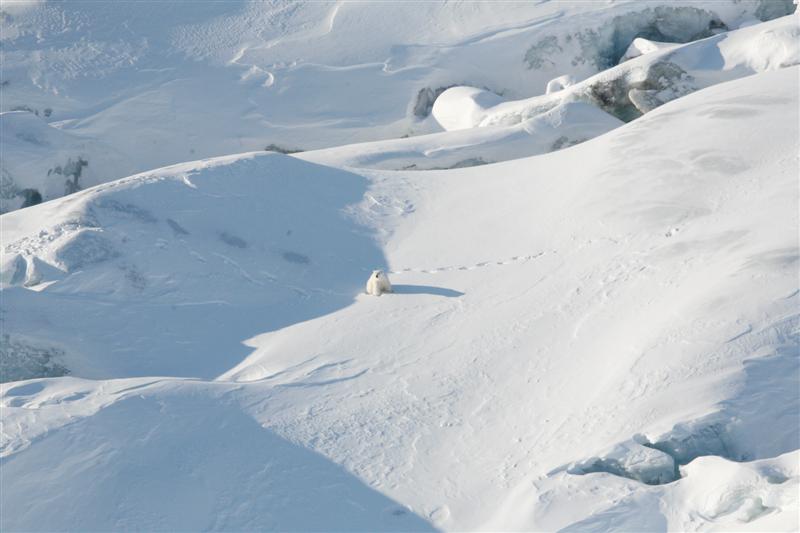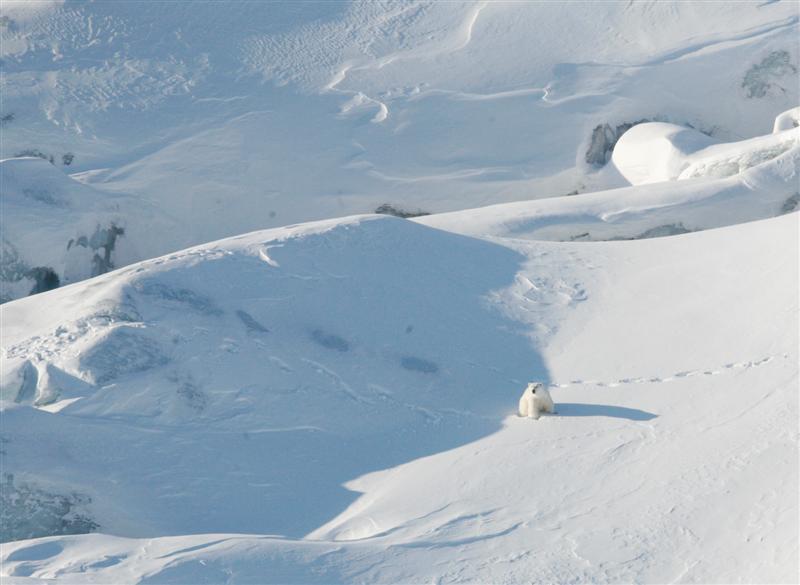Jon Aars is a researcher with the Norwegian Polar Institute, Norway’s main institution for research, environmental monitoring and mapping of the polar regions. With the support of WWF, Aars studies polar bear populations on the Norwegian island of Svalbard. Read all of his field notes from a Spring 2013 research expedition, and follow the bears on our Polar Bear Tracker.

14 April – After some days in southern Svalbard, the weather improved in more northern areas, and we sailed up north of Spitsbergen, at a latitude of about 80°. After lunch the weather was fine for flying, and we found an adult female in Woodfjorden, north-west Spitsbergen. Few polar bears survive long after they pass their early twenties, but this lady was marked in Woodfjorden already in 1994, as an adult with two small cubs, then estimated to be 7 years old. So at a likely age of 26 years, she will be one of the oldest bears around in Svalbard. She got a collar on, and hopefully she will still be able to hunt seals for a while, at least her condition seemed good.
We handled another two adult females, one together with a yearling and another with two small cubs. This is an area where a few females come out from maternity dens every spring, and most bears we encounter here are very local. Genetics have shown that daughters comes back to the fjords in this area and goes into den in the same area where they were born. Some may walk far into the pack ice north and northeast from there in summer, but will return before autumn. Other bears use the local area year around.
